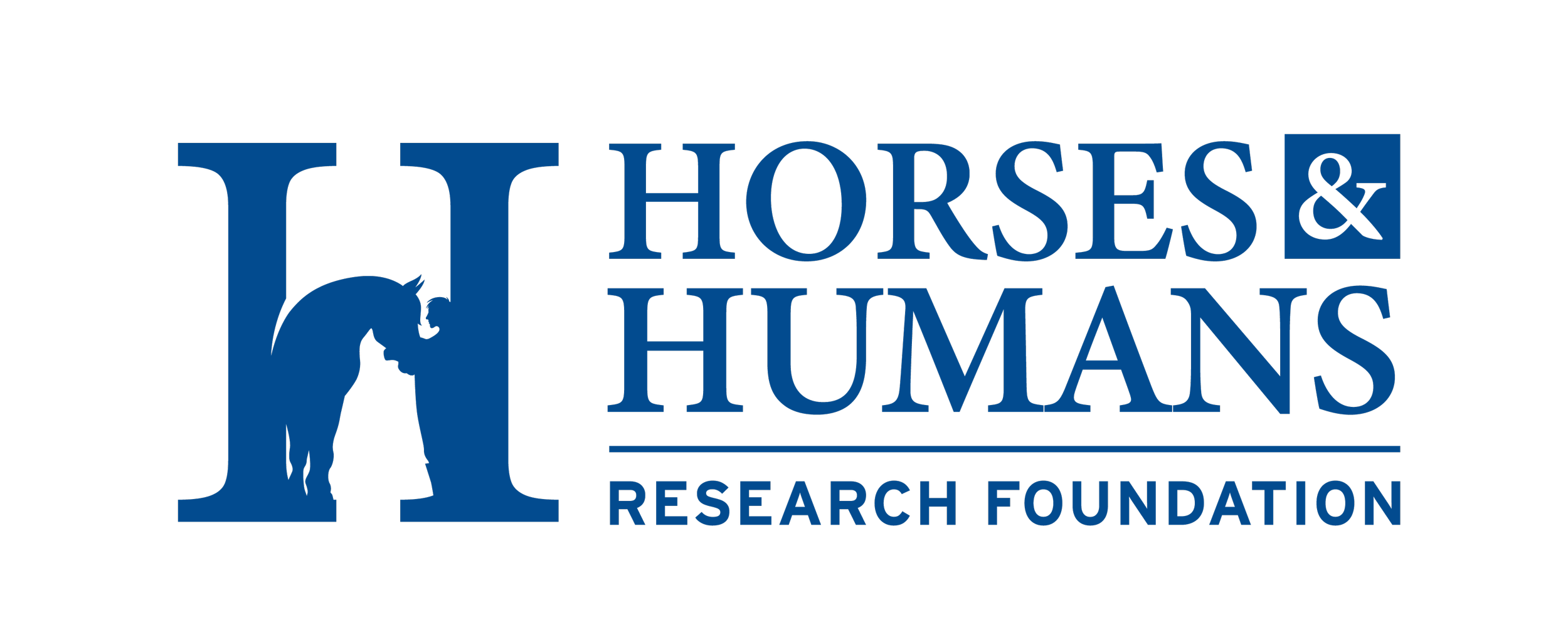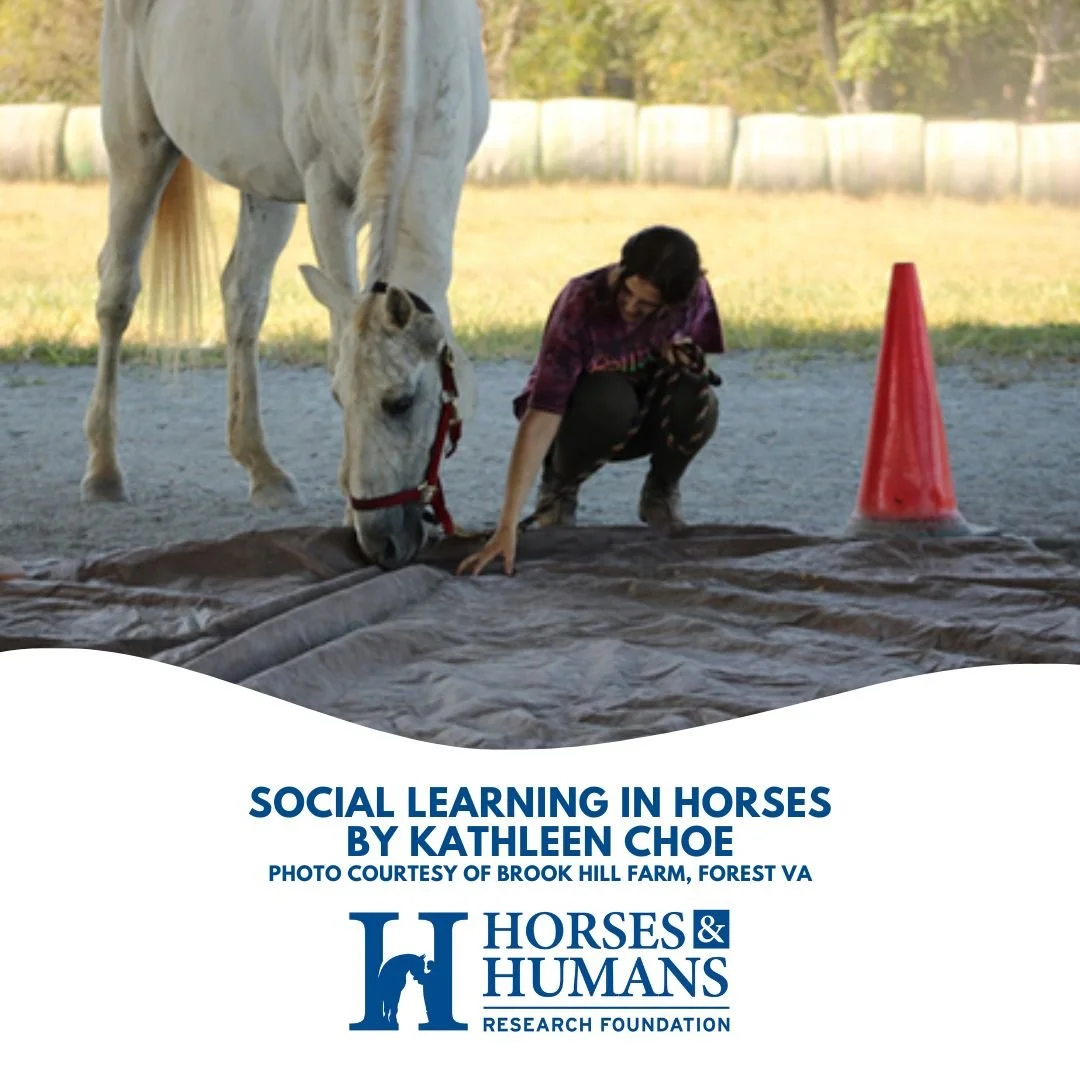Social Learning in Horses By Kathleen Choe
An interesting research study conducted in Germany explored whether horses might engage in social learning by observing human behavior that wasn’t directly targeted at teaching them something. [1] The researchers investigated whether the animals might adapt their preferred feeding location choices after observing humans displaying specific preferences even when the humans were no longer involved. They were trying to answer the following three questions:
Do horses change their preferred feeding locations after “eavesdropping” on disapproval and approval in a human-human interaction?
Does the learned preference persist in the absence of those people?
Do the housing conditions or the social rank, age, or sex of the horses affect their feeding location choice?
First each of 17 horses were given the opportunity to eat grain and carrots from two separate buckets, one blue and one yellow. When all of the horses were comfortably eating from both buckets, two experimenters approached the buckets within view of the horses. One bucket was designated “the approval bucket” and the other “the disapproval bucket.” When one person approached the approval bucket and ate a carrot from it, the other one displayed approval by bowing towards her, touching her shoulder and saying in a gentle, kind voice, “good, nice job,” while she continued eating the carrot.
When the experimenter approached the disapproval bucket and ate a carrot from it, the other one would wave her arms and say harshly, “no, no, don’t do that,” until the person dropped the carrot back into the bucket and retreated.
12 of the 17 horses began to prefer eating from the approval bucket after observing the human’s behavior demonstrated over a period of time. They showed a significant change in their feeding preferences in favor of the approval bucket even when no humans were present to influence their choices.
The horses’ social rank, age and sex did not affect their learning performance. However, the horses’ living conditions was an important factor. Horses who were kept together in social groups appeared more influenced by observing the human’s behavior around the feed buckets than horses kept in individual stalls apart from each other. This suggests that social experience within the species is a crucial factor for the development of cognitive skills such as using social cues and learning inferentially from another species. Social contact is an established basic need in horses and if this need is compromised, it appears to have an effect on the horse’s ability to learn and adapt.
Social learning theory, developed by Albert Bandura, suggests that people learn by observing others. It emphasizes the importance of imitation, modeling, and reinforcement in the learning process. Individuals can acquire new behaviors not only through direct experience but also by watching others and seeing the consequences of their actions. Horses whose social connection needs are adequately met appear to have the cognitive ability to learn in this way as well; isolation affects them in similar ways as it does humans, possibly by diminishing their cross brain connections and impairing their ability to learn and integrate new information.
This has profound implications both for the housing welfare needs of horses, as well as the importance of educating anyone who comes in contact with them about the influence their attitudes and actions can have on the equines they interact with.
Research like this is not possible without the grant funding awarded by HHRF and other organizations. Please consider making a donation to support further studies in the field of Equine Assisted Services! Click here to support this work: https://www.horsesandhumans.org/
[1] Krueger, K., Roll, A., Beyer, A.J. et al. Learning from eavesdropping on human-human encounters changes feeding location choice in horses (Equus Caballus). Anim Cogn 28, 23 (2025). https://doi.org/10.1007/s10071-025-01946-1

